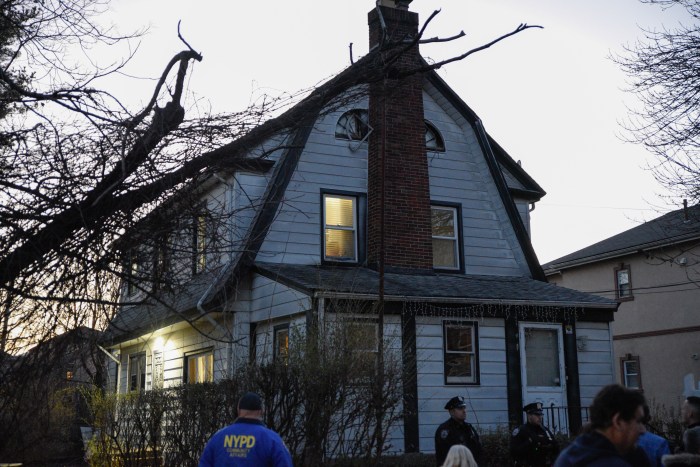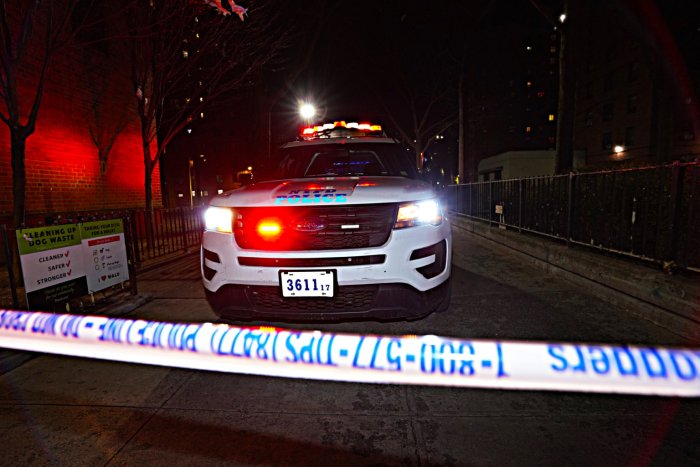By Alexander Dworkowitz
Angela Lee had heard a lot of horror stories.
As associate director of the New York Asian Women’s Center, which provides shelter to women at confidential locations, Lee works firsthand with immigrant women struggling to survive.
Most of the stories are told by women escaping domestic violence. But many other tales involve problems at the courts.
“There have been court cases where there were no interpreters,” said Lee, speaking of times when she has accompanied women to the Queens Civil Court in Jamaica. “We would have to wait. At the end of the day, no interpreters had come, and the judge told the immigrants they had to wait until another day. Some of them would end up losing their jobs because they had to keep coming.”
The New York Asian Women’s Center has teamed up with other advocacy groups such as the Asian-American Legal Defense and Education Fund and the National Korean American Service and Education Consortium with the goal of having more interpreters at Queens Civil Court and civil courts in other boroughs.
Stanley Mark, attorney and program director of AALDEF, said many immigrants were having their rights denied by New York’s civil courts.
“Under Title VI of the Civil Rights Act, they’re denying equal access by not providing enough language assistance,” said Mark.
According to David Bookstaver, a spokesman for the city’s Office of Court Administration, the city provides translation in 16 different languages at the civil courts.
But Mark said the problem is not so much the number of languages that can be translated, but the number of interpreters who are readily available. After considering a lawsuit against the city, AALDEF has demanded one or two permanent Chinese interpreters for the entire municipal civil court system as well as one Korean interpreters and permanent interpreters for two South Asian languages such as Hindi or Urdu.
All interpreters currently work on a per diem basis.
Bookstaver insisted, however, that the interpretative services provided by the civil courts were adequate for the city’s current needs.
Bookstaver said that on Mondays, Wednesdays, and Fridays, Mandarin and Cantonese interpreters were readily available at the Queens Civil Court, and Korean interpreters were available Wednesdays as well.
“We’ll work with the community, but there’s an effective process in place,” said Bookstaver.
Bookstaver added that providing full-time translation for certain languages was too much of a strain on the Court Administration’s budget.
“If we had a Farsi translator, in theory he might have to wait a year before a case,” he said.
Mirenda Chin, who began working as a Mandarin and Cantonese interpreter at Queens Civil Court in April 1998 before being laid off in June 2001, said the Office of Court Administration told her she had problems covering all the necessary cases.
“Some of the cases had to be adjourned because I was stuck in another trial,” said Chin.
Chin also criticized the translation of the pamphlets at the court that explain the workings of the court system .
“Hardly any material is translated in Chinese, and almost nothing into Korean and South Asian languages,” she said.
Bookstaver refused to answer questions from the TimesLedger about the pamphlets.
Steve Yun, executive director of the National Korean American Service, said many Asian-Americans did not know what resources were available to them.
“I think the main problem is a lack of publicity,” said Yun. “Some don’t even know they have part-time interpreters at the court. A lot of Asian-Americans will go to the court and bring their high school daughter or son to interpret for them.”
Reach reporter Alexander Dworkowitz by e-mail at Timesledger@aol.com or call 229-0300, Ext. 141.
































